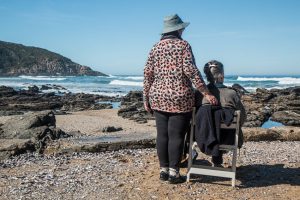Addiction is defined as a “treatable, chronic medical disease involving complex interactions among brain circuits, genetics, the environment, and an individual’s life experiences.” An addict is a person suffering from this medical disease, whether addicted to drugs, alcohol, or other abusable substances. An addiction can hurt a person’s job, their relationships, their financial stability, their psyche, and even physical health.
However, addicts themselves are not the only ones who deal with the consequences of abusing dangerous substances. Approximately five people per addict struggle and deal with the consequences of an addict’s actions. These people are typically family members, but can also be co-workers, friends, neighbors, or even bosses. Such consequences range from psychological or physical abuse, anxiety, fear, anger, helplessness, and general stress.
Close friends or family members, in particular, may want to help them however they can, but do not know how they can help. In these cases, a family may often feel useless and believe treatment is entirely up to professionals; however, not only can families help an addict’s recovery, but they may also be a vital component of it.
The Toll of Addiction
Addiction is a damaging condition not only for the addict but also the people around them. It puts mental health, physical health, relationships, and welfare into danger, continuously spiraling into chaos for addicts and families alike. Gradually, addicts can become unreasonable and even abusive while families become stressed and worried about said addict constantly.
Addicts and sometimes the families themselves underestimate their suffering because trying to manage and control an addict becomes as stressful as the addiction itself. Trying to control someone else’s addiction is not only extremely difficult but demanding. In some cases, families simply begin to accept their situation and tolerate bad behavior, ultimately perpetuating the addiction.
Furthermore, witnessing an addiction with the inability to change an addict’s behavior often makes onlooking family members feel helpless. Not only might they begin to accept their loved one’s addiction, but also the trap of living with an addict.
Confronting an Addict
Though you as a family member may not be able to change an addict on your own, you can instigate change. Many addicts begin recovery through interventions: learning about their problems and drug use from objective third parties. Though families are typically involved, they may hire doctors or professional interventionists to help provide an educated and unbiased viewpoint.
Confrontation can be difficult and even painful at times, but this honesty is what matters most amongst family. In contrast, bottling up feelings on both ends can damage relationships as opposed to helping them. By building the courage to point out an addict’s problems and your feelings, this helps both them and you.
Helping an Addict Going Forward
Unfortunately, recovery from addictions do not always go as planned; relapse may occur, while some addicts simply
In such extreme cases, the solution may surprise you: it is time to walk away and take care of yourself. As explained prior, addiction damages more than just the addict but their loved ones as well. For these circumstances, you may need to consider seeking your own recovery but also let the addict “feel the heat”. Though you may struggle to believe otherwise, this is not a selfish decision.
Families typically will shield addicts from the consequences of their actions: providing money, bailing them out, or lying for them. By stepping away and having an addict face the consequences, they may eventually find said consequences outweigh the pleasures of substance abuse. In addition, it is crucial to take care of yourself before taking care of others at all. When recovery does arrive, you can begin to heal together in other programs such as family matters workshops. Through both harsh honesty and loving support, addicts can not only begin recovery but also recover as a family with you.
If you or a loved one is struggling with drug or alcohol addiction, contact Discover Place’s Treatment & Rehab alternative in Tennessee. You might be interested in Discovery Place’s own treatment center alternatives, such as our 30 Day Residential Addiction Alternative Recovery Program or our Long Term Alternative Recovery Program in Burns, Tennessee. Call us for a free consultation at 1-800-725-0922.

